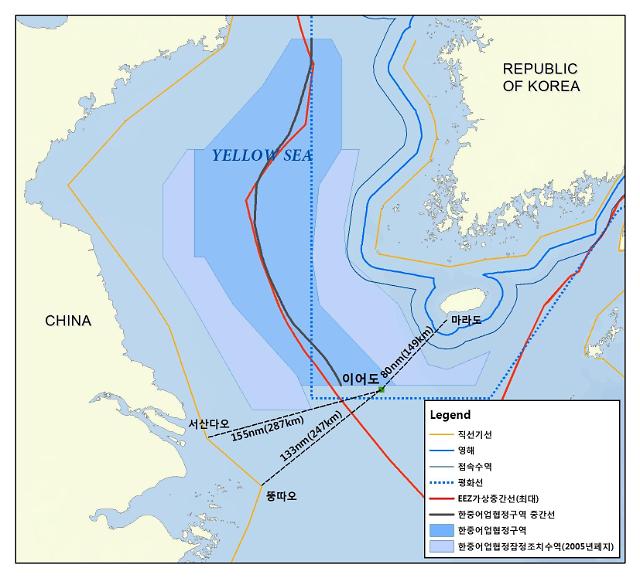
Yang Hee-Cheol [Aju News DB]
International concerns are growing over a possible conflict between Washington and Beijing as Chinese President Xi Jining is aggressively pushing for his trademark "One Road and One Belt" initiative to gain control over the regional sea.
China hopes to become a powerful state covering the ocean and land together, said Yang Hee-Cheol, director general of the Ocean Policy Institute under the Korea Institute of Oceans Science & Technology, referring to what he called "hegemonic competition" between Washington and Beijing.
"This is why China is trying to catch the supremacy in the sea," Yang said in an interview with Aju News, adding China aims to wield a strong influence over the region under the excuse of claiming its sovereign maritime right.
China appeared to have drawn "a big picture" in achieving a balance of power with the U.S. through stable control of the regional sea and the enhancement of naval power, the expert in maritime affairs said.
"The first step is to stabilize the regional sea, then to gain its full control before advancing into the ocean," he said, attributing the start of a struggle for supremacy in the sea to a U.N. convention, enforced in 1994, that allowed coastal nations to control an exclusive economic zone (EEZ) stretching 200 nautical miles.
"In particular, the United States, which claims to be a top cop, used to move freely in any sea, but its movement was restricted by the convention," Yang said. "The backbone of contention is military activities within the EEZ, which acknowledges the exclusive rights of all resources from the coastal state."

This map shows overlapping maritime boundaries between South Korea and China. [Courtesy of Ocean Policy Institute]
China and the U.S. are testing each other's nerves, keeping in mind how far the other side will go if provoked, Yang said, explaining the strategy of the two superpowers.
"China has a grand strategy of global management. In order to realize this, it has a firm philosophy that the ocean should be at the center of its strategy, not the land," said Yang. "China regards the sea as a platform for power and the core of national interests."
For China, it is necessary to break out of the current framework for the successful implementation of Xi's initiative, he said. "However, it's not easy to catch two rabbits: seeking the hegemony of the sea and establishing trust with neighboring countries."
Chinese leaders are in a dilemma over how to establish a relationship of trust with the neighboring countries. At the same time, Beijing cannot miss its maritime sovereignty because it put maritime power into the top of its national strategy, Yang said.
"However, if the sea becomes the area of abstinence and self-restraint like the past, It will be difficult for China to achieve its goal by 2030."
The Chinese military has the upper hand in making a final decision on strategic interests, he said, suggesting a sea conflict is possible between U.S. and Chinese coastguard ships or fishing boats. "China has done
everything it can to prepare for such a situation and there will be no full-scale military conflict."
About disputes between South Korea and China over their overlapping sea boundaries, Yang forecast tough negotiations because Beijing lacks proper regulations.
"In our case, there is a provision not to exercise jurisdiction outside the median line if the two countries do not agree, but China has no such regulations."
South Korea reacts sensitively because of illegal operations by Chinese fishing boats, the expert said, calling for an early establishment of the maritime boundary. "If we do not solve this problem, China will continue to catch fish from our waters."
A fishing quota could be allocated in return for China's concessions in other fields if the two countries draw their maritime boundaries, as there are a lot of issues that require cooperation between Seoul and Beijing, such as climate change and maritime safety, he said.
In order to transform the current structure into a cooperative mode, Yang proposed there should be the change of paradigm not to look for the keyword of cooperation anymore at the national level but to secure the right of people living on the Yellow Sea such as the prevention of environmental pollution and a broad ecosystem project.
The Yellow Sea and the East China Sea are both "semi-enclosed", requiring joint management, and it is necessary to solve problems from the viewpoint of how the two sides can protect bilateral interests and manage the overlapping waters.
Yang urged each side to boldly disclose information. "When we open aggressively, there is a lot of room to open on the part of China. Through this process, we need to eliminate doubt and build trust." Also, he stressed that South Korean government officials should be given "enough discretion" to negotiate actively with China.
This story was contributed by Kim Jung-geon, a senior writer at Aju Business Daily, and edited by Lim Chang-won.



![[OPINION] Assessing the trajectory of Chinas Economy: Growth or decline](https://image.ajunews.com/content/image/2024/01/31/20240131173956149557.jpg)
![[OPINION] CEWC 2024: Chinas strategic blueprint](https://image.ajunews.com/content/image/2023/12/21/20231221171623376236.jpg)